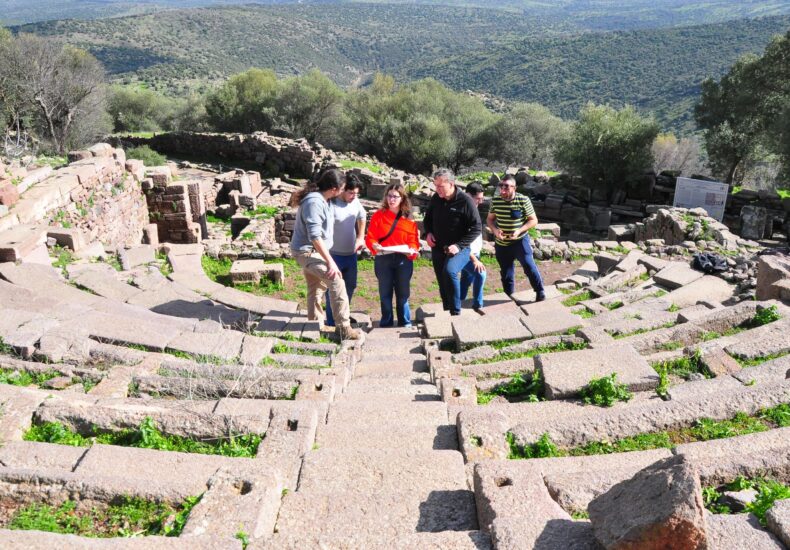
2,200-Year-Old Assembly Building at Aigai Enters Conservation Phase in Western Türkiye
High on the slopes of Yunt Mountain in western Türkiye, a silent stone structure once echoed with debate. Today, the 2,200-year-old bouleuterion—Aigai’s ancient assembly building—is preparing for a new chapter: conservation and restoration. Located in the Yunusemre district of Manisa, the ancient city of Aigai has been under excavation since 2004. According to excavation director
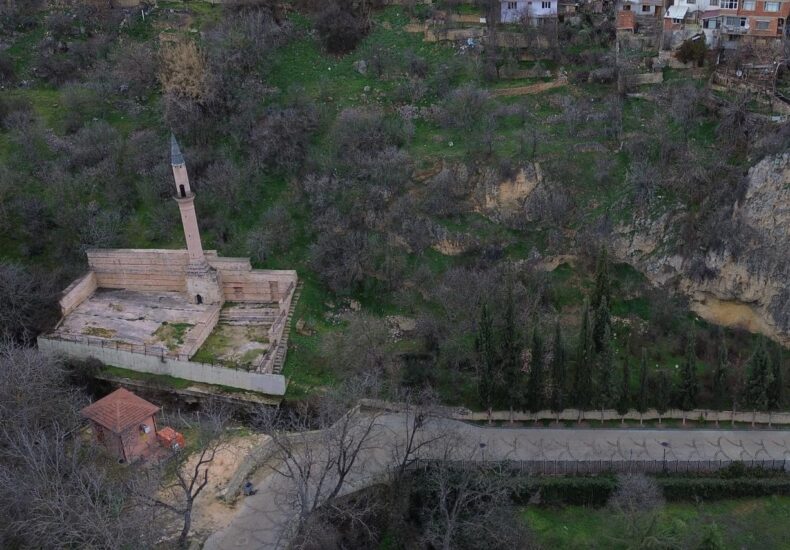
Site of Ottoman Founder Osman I’s Lost House Identified and Registered in Bilecik, Türkiye
The building no longer survives. It was likely destroyed during the upheaval of the early 20th century. Yet in 2025, Turkish authorities formally registered the exact location traditionally identified as the house of Osman I, founder of the Ottoman state, inside the Sheikh Edebali Complex in Bilecik, northwestern Türkiye. The registration covers a 40-square-meter area,
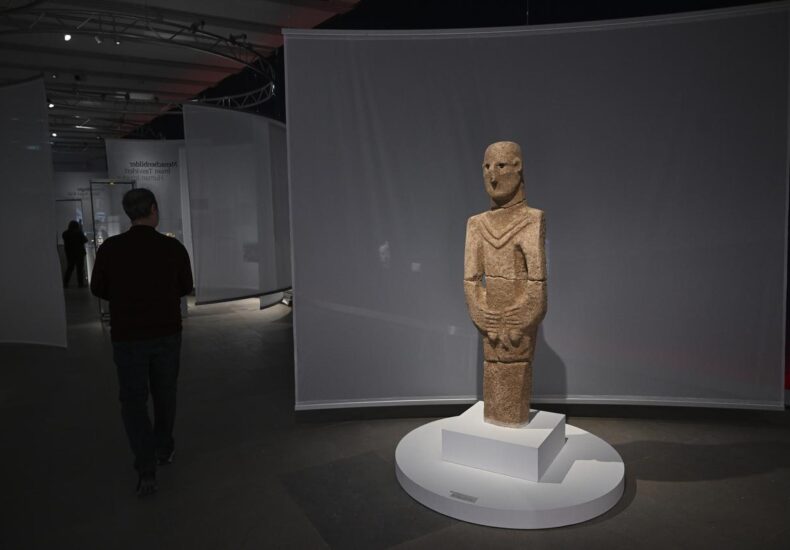
The Beginning of Human History in Berlin: Göbeklitepe and Taş Tepeler Exhibition Opens
The story of humanity’s earliest communities is now unfolding in the heart of Europe. On February 10, a major exhibition dedicated to Göbeklitepe and the wider Taş Tepeler region opens in Berlin, bringing 12,000 years of history to an international audience. Titled “The Discovery of Society: Life 12,000 Years Ago at Göbeklitepe and the Taş
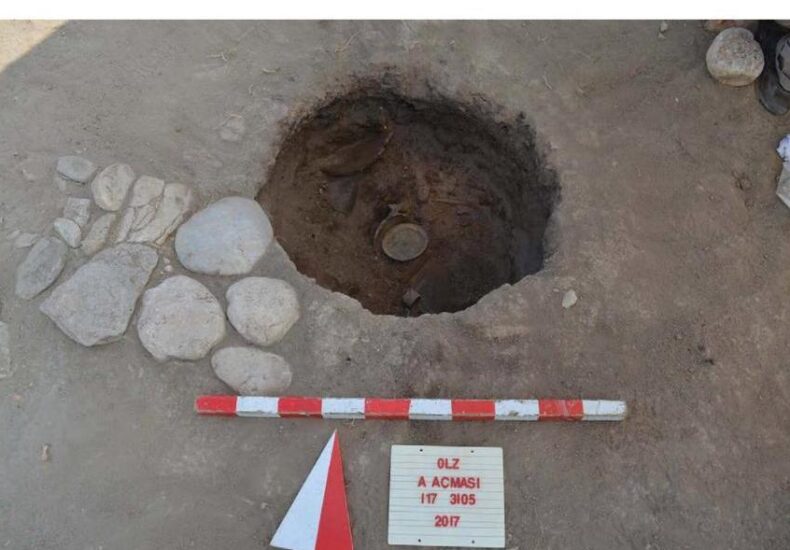
Ancient Ritual Pit at Oluz Höyük May Represent Anatolia’s Earliest Evidence of Zoroastrian Worship
Across central Anatolia, layers of earth sometimes preserve turning points in religious history. At Oluz Höyük, an archaeological mound near modern Amasya in northern Türkiye, researchers have identified a ritual installation that may represent the earliest archaeological evidence of Zoroastrian ceremonial practice in Anatolia. The interpretation is based on a detailed academic study examining a
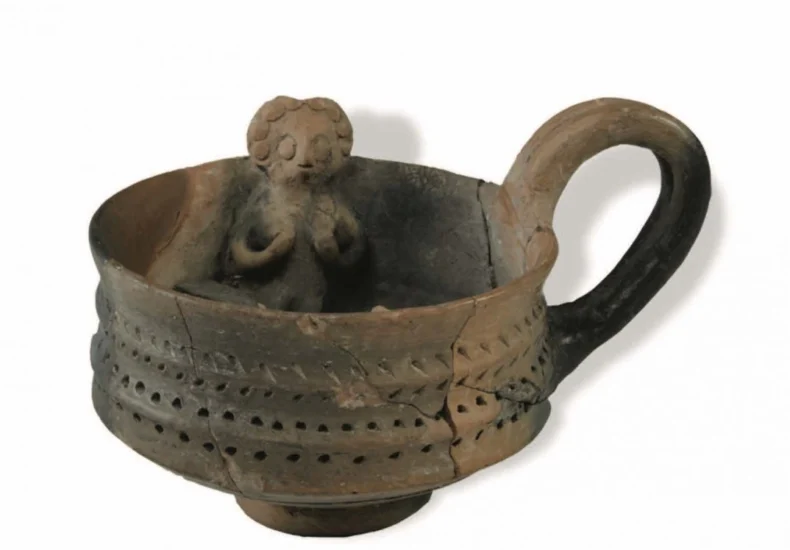
A Hittite Goddess Vessel from Eskiyapar and the Ritual of “Drinking the God”
The Hittites were among the earliest state-forming societies of Anatolia, shaping their political power alongside an exceptionally complex religious system. Their rituals, preserved on thousands of cuneiform tablets, describe ceremonies rich in symbolism—many of which have long remained difficult to visualize. A small ceramic vessel unearthed at Eskiyapar now offers a rare and tangible glimpse

Scientific Study Reveals: The Hittites Practiced an Advanced Hygiene Culture 3,000 Years Ago
Long before modern concepts of sanitation emerged, the Hittites appear to have developed a surprisingly structured and disciplined approach to cleanliness. A new scientific study demonstrates that hygiene in Hittite society was not a marginal habit, but a core element shaping daily life, religious practice, and social order in Late Bronze Age Anatolia. The research,
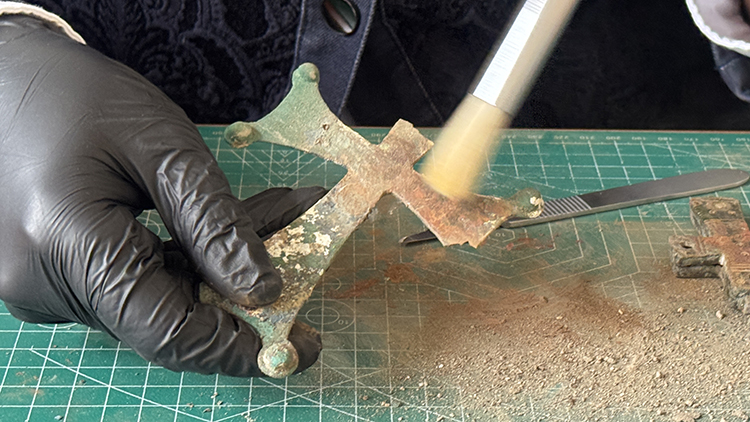
A Sealed Medieval Reliquary Cross Unearthed at Ancient Lystra in Central Anatolia
Archaeological excavations at Lystra Ancient City, located in central Anatolia, have brought to light a rare Christian artifact: a sealed bronze reliquary cross dating to between the 9th and 11th centuries. The object was discovered intact during excavations in the church area of the ancient settlement, offering valuable insight into medieval Christian belief and burial

The Most Important Oracle of the Aiolis Region: The 2,300-Year-Old Temple of Apollo Khresterios at Aigai
Hidden deep within a rural valley of western Türkiye, far from modern roads and urban pressure, the Temple of Apollo Khresterios stands as one of the most intact and enigmatic oracle centers of the ancient world. Located near the ancient city of Aigai, the sanctuary played a central role in the religious life of the
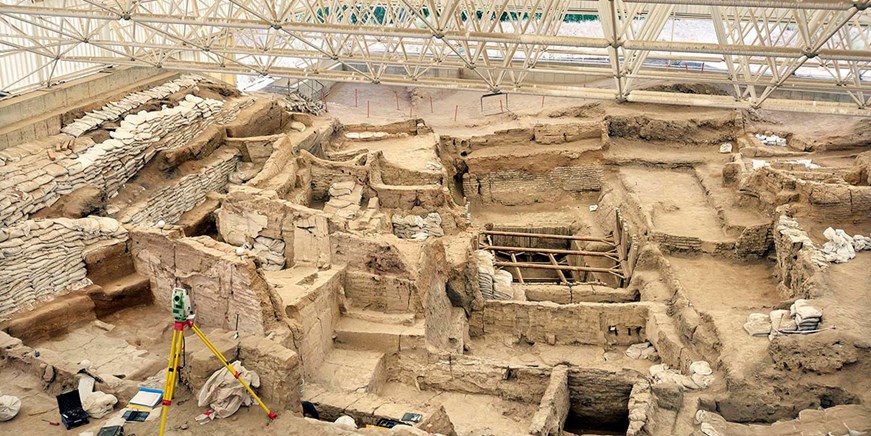
Çatalhöyük Study Wins Major Award in Poland: Turkish Scientists Help Redefine Neolithic Social Structure
A groundbreaking study on the Neolithic settlement of Çatalhöyük has received international recognition in Poland, after being selected as the most important foreign archaeological discovery of 2025 by Polish archaeologists. The award highlights research that challenges long-standing assumptions about social organization in early farming communities—placing women at the center of Neolithic life. The distinction was
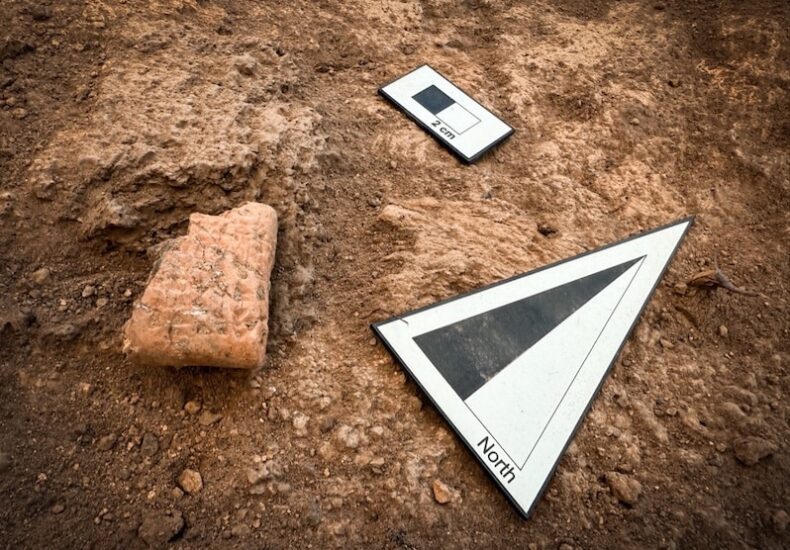
Excavations at Alalakh Are Shaping a New Late Bronze Age Cuneiform Archive
At Alalakh, archaeologists have identified the remains of a new Late Bronze Age cuneiform tablet archive during the 2025 excavation season. The discovery offers a rare, context-rich view of how administration functioned in one of the Levant’s key ancient cities. The work forms part of the long-running Tell Atchana excavations in Hatay, Türkiye, carried out
